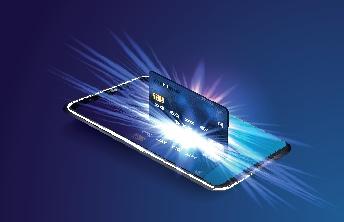Don’t Pay for Subscriptions Without a Virtual Card
Approximately 48% of US adults have signed up for a subscription service’s free trial and forgotten to cancel it, according to a new CNET survey. Consistently making this mistake can add up to hundreds or more per year. But there’s an easy fix that can help you avoid this headache: using a virtual credit card. Many virtual cards are one-time use only, making them ideal for free subscriptions. If you forget to cancel, the subscription shouldn’t be able to charge you using your virtual card number. And even if your virtual card number can be used multiple times, you can typically lock your card to prevent new charges from going through or replace it with a new virtual card number. [CNET]
GM in Talks to Move Credit Card Business from Goldman to Barclays
Goldman Sachs is in talks to transfer its General Motors credit card program to Barclays, in what would be a big step in the Wall Street bank’s retreat from consumer lending. Barclays is the leading candidate to take over issuance of the credit cards, which have about $2 billion of balances outstanding, and could strike a deal with GM by this summer. Other suitors including U.S. Bancorp and Bread Financial were in the mix but recently fell away. There is no guarantee Barclays will clinch a deal, and another suitor could re-emerge. The firm began issuing GM credit cards in 2022 and has struggled to add customers. Goldman executives grew frustrated at what they saw as too little effort by GM car dealers to promote the card. [The Wall Street Journal]
A Cap on Credit Card Fees Would Hurt Department Stores Most
If a consumer doesn’t pay their credit card bill on time, they might get saddled with a late fee of $32, which is the average. The Consumer Financial Protection Bureau calls that a junk fee. And the Biden administration is trying to crack down on them by capping the late fee banks charge credit card users at $8 per transaction. That rule will go into effect on May 14. This is good for consumers, maybe, but banks don’t love it. And it’s probably safe to say neither do retailers like Nordstrom, Macy’s and Kohl’s, stores that are already having a tough time. Credit cards have become an important piece of department stores’ bottom lines. One analyst estimates that Macy’s makes nearly half of its operating profits from its credit card program. When you think of credit cards, you might think of one of the big issuers, like Visa or Mastercard, or maybe banks. But credit cards were invented by retailers. [Marketplace]
1 in 4 Consumers Prefer Credit Cards from Local Banks or Credit Unions
According to PYMNTS Intelligence, credit unions (CUs) and community banks continue to gain traction in the consumer credit card space. Once 76% of consumers turned to national banks to issue their primary credit cards; now only about 68% do so. The study found that 24% of consumers would, given the option, prefer that a more local option, such as their credit union or community bank, issue the main credit card they use. CUs perform best with high-spending revolvers: those who pay for more than 40% of their purchases with credit cards and usually carry a balance. 19% prefer credit unions to issue new cards. These are followed closely by the two low-spending personas, both of whom put less than 40% of their expenses on primary cards and either pay or their balances in full each month or not. 18% of low spenders prefer credit unions issue their primary cards. Nearly 9% of each segment prefer community banks. [PYMNTS]
SMBs Are Increasingly Opting for Real-Time Payments, Leaving Credit Cards Behind as Their Preferred Choice
In the healthcare sector, small and medium-sized businesses (SMB) have increasingly turned to RTP payments for A2A transfers, showing a surge compared to credit cards and checks over the past year. Real-time payments are the preferred choice for 83% of SMB healthcare providers, outshining any individual payment method in terms of usage. 38% of healthcare provider SMBs identified a real-time payment method as their primary payment rail with instant bank account-to-account payments topping the list at 15%, closely followed by instant PayPal at 13%. Healthcare provider SMBs exhibit a greater propensity to adopt a real-time payment system as their primary payment method when they are affiliated with a national or regional bank, rather than a local bank or credit union (CU). This inclination is particularly pronounced for national banks, with 55% of healthcare provider SMBs opting for a real-time payment rail, followed by 38% for regional banks, and a mere 24% for local banks and CUs. [Tear Sheet]
Here’s How Much Credit Card Debt the Average American Has
The average American household now owes $7,951 in credit card debt, according to the most recent data available from the Federal Reserve Bank of New York and the U.S. Census Bureau. But that’s just the average. The amount of credit card debt also varies significantly by generation, with members of the Generation X and Baby Boomer generations carrying the most credit card debt per person on average. Here’s what that breaks down to: Generation X (ages 42 to 57): $8,134; Baby boomers (ages 58 to 76): $6,245; Millennials (ages 26 to 41): $5,649; Silent generation (ages 77+): $3,316; Generation Z (ages 19 to 25): $2,854. [CBS News]
Buy Now, Pay Later Lender Affirm Pushes into Elective Medical Procedures
Fintech lender Affirm has started quietly offering “buy now, pay later” loans for elective medical procedures, in a major push beyond its core e-commerce market. Over the past year, Affirm has more than doubled the number of elective medical merchants on its network, reaching around 130 at of the end of 2023. The San Francisco-based company is hoping to tap growing consumer demand for financing for cosmetic treatments, dental services, medical devices and veterinary procedures. [Reuters]
Mastercard: Tokenized Transactions Grow 50% Year Over Year
Mastercard said in its most recent earnings report on Wednesday that the shift to digital payments from cash is gaining strength, and contactless and tokenized transactions are proving to be strong tailwinds. Tap to Phone, he said, is live across more than 100 markets, and tokenization is creating a “flywheel effect” as “lower fraud, higher approval rates and a better consumer experience bring more transactions and volume to the Mastercard network.” Tokenized transactions grew 50% year over year. Approximately 1 in 4 transactions on the Mastercard network are tokenized today. [PYMNTS]
Do U.S. Bank Lenders Offer Less Credit to Highly Opioid-Impacted Communities?
A new study entitled “The Opioid Epidemic and Consumer Credit Supply: Evidence from Credit Cards,” found that bank lenders, to account for higher credit risk, significantly reduced credit supply (by 10%) to opioid-impacted populations. (Indeed, the authors observed that individuals in counties with high opioid usage had more days past due on their credit cards.) When banks did solicit consumers with credit card offers in counties with heavy opioid usage, they charged a higher interest rate on the credit card debt (1–2 percentage points higher), lowered the credit limit (a 12–21% decrease), and offered fewer rewards (a 4% decrease). Within high-opioid-usage counties, credit terms were worse for certain groups, including people with incomes under $30,000 per year, those under the age of 25, and minorities (particularly Black Americans). [Federal Reserve Bank of Philadelphia]
O.J. Simpson’s Bank of America Credit Card Auctioned for $10,000
O.J. Simpson’s Bank of America credit card has been auctioned off just over 2 weeks after his death. The business account card, which expired in 2023, fetched $10,675 at Goldin Auctions, making the seller quite the profit after he purchased it on eBay for only $70. But the seller is not keeping the final sale amount all for himself. He’s doing some good by donating 10% of the proceeds to the National Network to End Domestic Violence. [TMZ]
Read the full article here
















